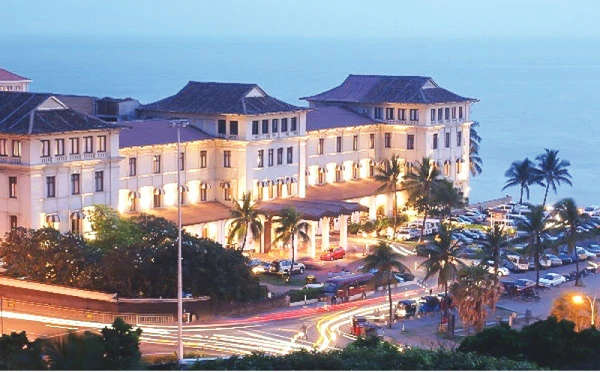
By Prasadini Nanayakkara
First emerging in the year 1864 as the Galle Face House built by the then Colonial Governor to host his guests, the Galle Face Hotel has since evolved and prevailed to earn the prestige of being the first purpose built hotel in the country. Today Galle Face Hotel reaches 150 years as it continues to offer its guests its signature hospitality in colonial ambience. It is of note that the Hotel closely follows the very first organised hotel – a prototype of a modern hotel built in Boston, USA in 1829. Today Galle Face Hotel is a veteran in the industry earning its place as heritage in hospitality.
Recently Galle Face Hotel had cause for celebration as, in a short period of three years past, it was awarded four prestigious accolades, namely the first and only Presidential Award for the Best Heritage Hotel in 2009, PATA (Pacific Asia Travel Association) Grand Award for the Best Heritage Hotel in 2011, Sri Lanka Tourism Award for the Best Heritage Hotel in 2010 and World Travel Award for the Best Business Hotel in 2011. Established as a small category hotel of 160 rooms Galle Face Hotel upholds its colonial heritage rooted in its simple beginnings and it promises to preserve its old world nuances for generations to come. In acknowledging its successes, the veteran expertise behind the Hotel intends that its many accomplishments would further bolster the image of the country as a destination while encouraging others in the industry as well.
It was 16 years ago that a 26 year-old Sanjiv Gardiner followed the footsteps of his father Cyril Gardiner in taking over the reigns at Galle Face Hotel. His father and his grandfather – Chiththampalam Gardiner – were the first Sri Lankans to invest in the Hotel. However, it was the young entrepreneur Sanjiv Gardiner who held the vision of capitalising on the strengths of the Hotel, while reinforcing its standards with the aspirations of becoming a viable competitor in the Asian region. His acumen found him in good stead as the Chairman and CEO of the Gardiner Group, that included the Ceylon Hotels Corporation, Kandy Hotels Company and Lihiniya Surf Hotel, Bentota as well. While elevating the 60 room property that he inherited to 160 rooms of the Group’s flagship Galle Face Hotel, the Group’s other ventures acquired him 20 hotels around the country; a total of 600 rooms. Queen’s Hotel and Hotel Suisse in Kandy are some of the established names in its portfolio of properties. The predominant feature in all of these properties is the conscientiousness in maintaining the Sri Lankan identity. Sri Lankan food, tradition and hospitality have been revived as value additions to each of these properties.
The Group has invested approximately one billion rupees, on upgrading some of its properties and restaurants and a further investment of 1.5 billion rupees on refurbishments for the remaining properties. In its efforts to enhance the image, re-branding is currently underway with some properties promoted as “Prestige” and others as “Heritage” or “Rest Houses”. With its chain of lodging properties in Sri Lanka the Group caters to both domestic and foreign tourists along with appropriate rates.
With peace prevailing across the island it is with much enthusiasm that Galle Face Hotel embraced its accomplishments whilst looking to a future of opportunities. “In making improvements to the industry value-addition is crucial,” notes Chandra Mohotti, Senior Vice President of Galle Face Hotel Management. With 39 years of experience Chandra Mohotti is a veteran in the industry. He stresses on the importance of building image with value for Sri Lanka. Observing that in the face of a flourishing tourism industry and ample opportunities for all, “it is to be comparable in the region that we must now lay focus on and to that end value addition requires exceptional service standards. However, during the lull over the past three decades, much of the expertise that has gone out of the country needs to be replaced.” A move that would demand a fresh take on the training processes currently in place in the country. With sophisticated infrastructure and developments readily available elsewhere across the region, in playing to the strengths of the country, “emphasis must be on uplifting standards and amplifying Sri Lankan hospitality,” he stresses further. Another development Chandra Mohotti sees is the need for an organised system for domestic travel where local travellers or families can also indulge in the offerings of the industry.
Nevertheless, he observes that there is a golden thread that runs across the hospitality industry of Sri Lanka, “the inherent Sri Lankan culture of the smile.”







